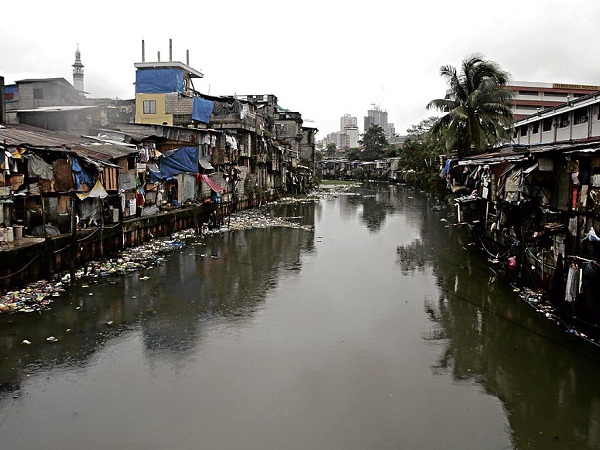It takes more than a village
In 1948, the United Nation adapted the Universal Declaration of Human Rights. Article 25 of this declaration states that “Everyone has the right to a standard of living adequate for the health and well-being of himself and of his family, including food, clothing, housing….”
The sad truth is that in this nation, we are nowhere near that “adequate” standard of living. As a Third World country, an individual’s standard of living depends largely on his personal income and not on the services provided by the government. Some of these basic services remain undelivered because the funds have either been spent on some other “priority” project, or have gone into some corrupt official’s pocket, whose standard of living I imagine, could very well be poles apart from yours.
Standard of living is often defined by the quality of one’s physical surroundings and material comforts. But to even get to that point, a human being will first satisfy his more basic needs of food and clothing before moving on to seek adequate shelter—a prerequisite to stability and a sense of permanence. Without any shelter, a person will always be in a state of continual unrest, spending whatever meager earnings on the cost of moving about. Such is the case of the homeless that roam the streets.
Illegal settlements
This is one of the reasons we are plagued with illegal settlements in practically every nook and cranny of the metropolis. People flock in from the provinces with big dreams, hoping to find jobs, get settled and start a life in the city. It’s a tragic storyline that plays over and over. For many, dreams are shattered too soon since finding a job is not easy and a well-paying one is almost impossible for those with very little education. Thus, for lack of a friend or relative willing to share his abode, any available space is made habitable: creek sides, riverbanks and even the undersides of bridges and flyovers.
Although government has established relocation villages in suburban areas, people choose to stay where they are most comfortable, comfort not necessarily defined by the physical aspect of their shelter, but rather, by the overall quality of life they can experience—all this in consideration of the emotional and psycho-social needs which are as important as, if not more than, the obvious physical ones.
The immediate neighborhood, village community or persons living and sharing the abode also contribute to the quality of life within the shelter itself. It has always been in our nature to receive support from our families, relatives, close friends and neighbors, as they act as companions, guardians and caregivers to our nuclear families. Moving away from a support system can dismember a family or individual. In a contemporary way, it’s still a bayanihan spirit that contributes to the dynamics of a family and its community.
But having a community too locked in together can have its problems too. The lack of privacy, both physical and psychosocial, can steal that sense of family and take control of one’s private affairs. Meddling relatives or neighbors can ruin the foundations of a family’s values, exposing children most especially, to undesirable behavior that one has no control over. The existence of the peeping-tom, the molesting uncle, the loud and bad-mouthed missus, the drug-pushing bully next door, and that mother of a dozen children incessantly trying to borrow money just to be able to feed her brood—are all realities that are present in a high-density community.
Inadequate standard of living
I once witnessed in the Daang-Hari area near the Navotas fishport, the existence of the devil-may-care parents whose children run around filthy, with one particular child running about without clothes on, and with his feces flowing down his legs. A disgusted neighbor washed the grime from his front “porch” but didn’t bother with the child. The little boy continued to run around and play.
In communities constantly exposed to an inadequate standard of living, there grows a kind of nonchalance or numbness to situations that other societies would consider damaging to the dignity of a child or even a grown human being. In a village of clustered homes sorely lacking of water and sewage services, planned with limited community centers and play spaces, and a lack of a reasonable degree of privacy, is this kind tolerance acceptable?
As more informal settlers attempt to find their home in the city only to be relocated to some village by the fringes of the metro, let us not forget that “health and well-being” are critical elements for an “adequate” standard of living. Well-being that is found within the protective walls of a nuclear family—in a setting that establishes values and sets the backdrop for the development of human beings into productive, law-abiding and God-fearing individuals. It is easier to provide shelter than to provide a proper home and environment for harnessing the human spirit. It certainly takes more than a village.
Contact the author through designdimensions@abi.ph or through our Asuncion Berenguer Facebook account.

